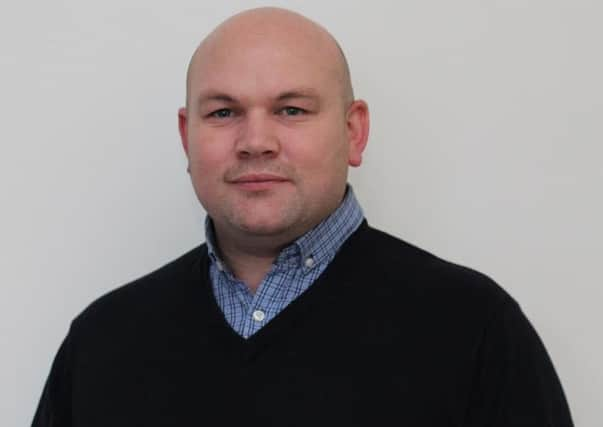Politically Correct by Dave Flanagan


Charities enjoy very close relationships with the people they serve, many of whom are economically vulnerable.
I believe charities should be allowed to campaign on behalf of those they support and do more to bridge the gap between the people they serve and the political classes.
Advertisement
Hide AdAdvertisement
Hide AdAt a time of such democratic deficit (if the EU referendum proved one thing it is that people do not feel their elected representatives are really representing them), I think this would not only be hugely valuable to society, but also to the position and significance of charities themselves.
Rather than being a source of trouble and discontent, charities and community groups are actually important sources of support for MPs and policymakers.
They bring communities together in a way that government rarely achieves.
A fresh approach from elected officials both locally and nationally would create the space and support for charities and community groups to connect, empower and transform people’s lives.
Advertisement
Hide AdAdvertisement
Hide AdCharities and community groups can help people get involved in the design and delivery of their services.
Government should look at what is being achieved in health with social prescribing and person-centred care, and see how such approaches can be replicated across all our public services to improve outcomes for people.
We need a new vision that places charities and community groups at the forefront of transforming public services.
Business has a responsibility to the communities in which it operates.
Advertisement
Hide AdAdvertisement
Hide AdThe Government must honour its manifesto promise to offer all employees in the public sector and organisations with more than 250 staff, three days paid volunteering leave and encourage businesses to build stronger links to communities.
Across the UK, more than 175,000 small local charities reach millions who face disadvantage, prejudice, poor health and isolation.
Reforms ‘living nightmare’
Since 2010, the voluntary sector has been on the back foot, reacting to a narrative set by others.
The soundbite of the ‘Big Society’ was quickly replaced by the reality of diminishing funding for the sector in the face of increased demand for its services.
Advertisement
Hide AdAdvertisement
Hide AdThe promises of social reform as set out by George Osborne, Iain Duncan Smith and Chris Grayling - austerity; the work programme; universal credit; transforming rehabilitation – have come to represent living nightmares for the disadvantaged and most vulnerable in our communities.
Despite the rhetoric that we were all in this together, austerity has caused most pain to those least able to shield themselves and their families from its ravages.
The commitment to the big society, if it ever truly existed, collapsed under the weight of austerity.
For those out of work, in hardship or with disabilities it has felt as if the Conservative Party were happier offering criticism than support, while charities standing up for those suffering the consequences of austerity face having their right to campaign suppressed.
Advertisement
Hide AdAdvertisement
Hide AdAll this in the context of a sector which still enjoys higher levels of trust than any other and whose members are uniquely placed to help inform and educate the public about the implications of critical policy choices.
In response to the statement by Philip Hammond, the new Chancellor of the Exchequer, that he will “scale back on austerity”, local charities need to be at the table sharing first hand their grass roots experiences and demonstrating how they can help and unite a fractured society.
Let those organisations unclouded by profit motives lead the way in thinking through how to reach people as they live, in the communities they live in.
Vote highlights lack of unity
On the issue of trust, a lack of honesty on both sides of the EU referendum has left the country divided.
Advertisement
Hide AdAdvertisement
Hide AdThe Government needs to build a more cohesive society where everyone is valued.
At a local level the people of Blackpool spoke out strongly to leave.
I was personally disappointed by the result and hoped to remain not least because I recognise the positive impact EU funding has at a local level. I have seen first hand the level of work undertaken not only by the voluntary and charity sector but also the adult education sector which was made possible with European funding.
This funding was and still is an integral part to the work of many organisations providing support.
Advertisement
Hide AdAdvertisement
Hide AdI understand the result in part constitutes a two-fingered response to the political class from people who feel they have been left behind by globalisation. But it has also emphasised growing divisions: between generations, between classes, between urban and rural Britain.